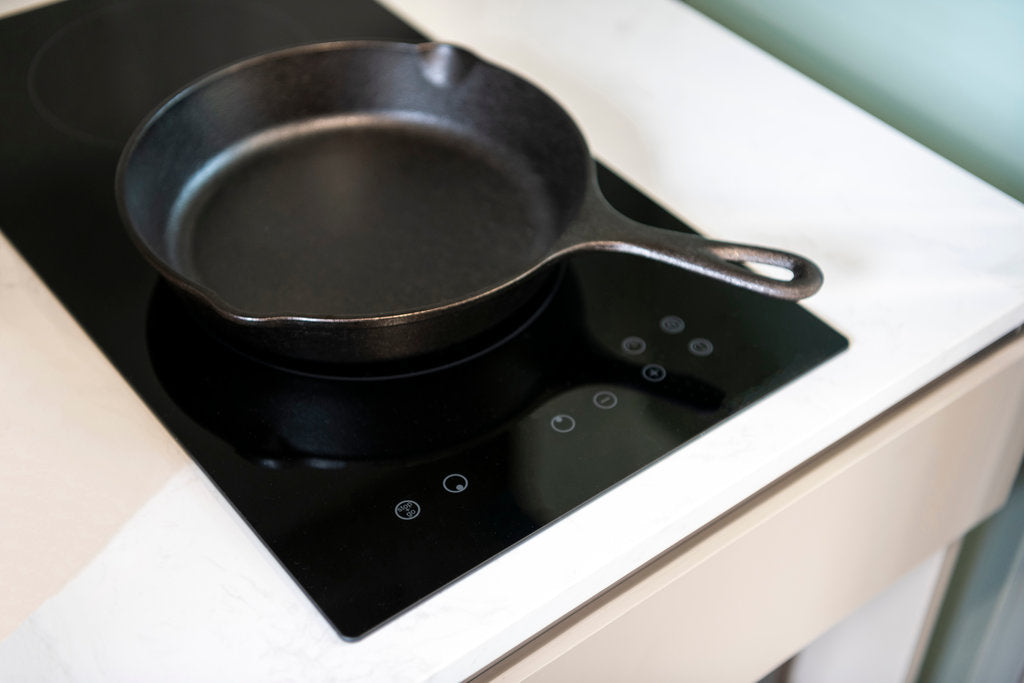Cast Iron Rattling on Induction Burner: What Causes It?
Written By James Morgan
For barbecue enthusiasts, the art of cooking extends beyond the grill. Many have ventured into the kitchen to use modern cooking tools like induction burners to enhance their culinary creations. However, a common issue that arises is the cast iron rattling on induction burner. This peculiar phenomenon can be quite perplexing, especially for those who are used to the sturdy, reliable nature of cast iron cookware. The main question is, why does this happen, and how can it be resolved?
Induction cooktops have rapidly gained popularity due to their efficiency and precision. They work by using electromagnetic fields to directly heat the cookware. While this technology is innovative, it can sometimes cause unexpected issues, such as the rattling of cast iron pans. For those who love the smoky flavor of searing meat in cast iron, understanding this issue is crucial.

Why Does Cast Iron Rattle on Induction Burners?
The rattling noise that occurs when using cast iron on an induction burner is often due to the interaction between the electromagnetic field and the iron molecules in the pan. When the magnetic waves pass through the cast iron, they can cause slight vibrations. These vibrations, while usually harmless, can result in a rattling sound that might be concerning for some cooks.
Another reason could be the uneven surface of some cast iron pans. Over time, cast iron can warp, especially if it has not been properly maintained. An uneven bottom may not sit flush on the flat surface of the induction cooktop, leading to vibrations and noise.
How to Minimize the Rattling
There are several steps that barbecue enthusiasts can take to minimize or eliminate the rattling sound when using cast iron on an induction burner. First, ensure that your cast iron cookware is in good condition. Regular seasoning and maintenance can prevent warping. If the bottom of the pan is not perfectly flat, consider having it resurfaced.
Another tip is to adjust the heat settings. Sometimes, the rattling is more pronounced at higher power levels. Experimenting with different settings can help reduce the noise. Additionally, using a rubber or silicone mat designed for induction cooktops can provide a buffer between the pan and the burner, dampening vibrations.
The Benefits of Using Cast Iron on Induction Cooktops
Despite the occasional noise, there are numerous benefits to using cast iron on induction cooktops. Cast iron is renowned for its heat retention and even cooking surface, making it a favorite among grill masters. When combined with the precise heat control of an induction burner, it becomes a powerful tool for achieving perfect sears and consistent cooking results.
Moreover, induction cooking is energy-efficient and faster than traditional methods, allowing for quicker meal preparation. For those interested in expanding their cooking repertoire, induction burners offer a modern twist on classic grilling techniques. For tips on how to build your own grill grates, check out this guide.
Choosing the Right Cookware for Your Induction Burner
Not all cast iron cookware is created equal. When selecting cast iron for use on an induction cooktop, look for pieces that have a smooth, flat bottom. This will ensure better contact with the cooktop and minimize the chance of rattling. Additionally, consider the weight and size of the cookware. Heavier pans are less likely to vibrate, while larger pans can distribute heat more evenly.
If you're in the market for new cookware, brands like Lodge and Field Company offer high-quality cast iron that is compatible with induction cooktops. For more insights on whether cast iron works on induction cooktops, visit this resource.

Conclusion
While the sound of cast iron rattling on an induction burner can be unsettling, understanding the cause and implementing a few simple solutions can help barbecue enthusiasts continue to enjoy their culinary pursuits without interruption. The combination of cast iron and induction cooking offers an exciting avenue for those passionate about grilling and cooking.
For more grilling tips and tricks, including how to grill fruit on grill grates, explore this article.
FAQs
Q: Can all cast iron pans be used on induction burners?
A: Most cast iron pans are compatible with induction burners, but it's essential to ensure they have a flat, smooth bottom for optimal performance.
Q: Will using a mat under the pan affect the cooking?
A: Using a mat designed for induction cooktops can help reduce noise and protect the cooktop without significantly affecting cooking performance.
Q: Is the rattling noise harmful to the cookware?
A: The rattling noise is generally harmless to the cookware and does not affect the cooking performance or longevity of the cast iron.



